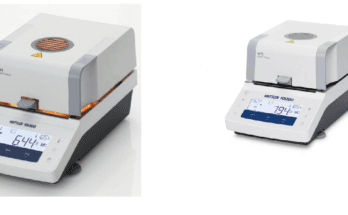A report by the European Parliamentary Research Service notes that this kind of technology is bound to make systems more transparent and democratic as it shifts some control of technology from central entities to individuals. More specifically, here are some of the areas that are likely to be impacted by blockchain technology:
Currencies: currencies are just some of the possible applications of this technology. However, they are so far the most popular. Cryptocurrencies such as Bitcoin—which is so far the most popular virtual currency—run on blockchain technology. In the financial world, banks, insurance companies, and other institutions will hugely benefit from this cheap and secure technology.
Digital Records: blockchain technology could be used to manage digital rights associated with digital products. This will help tackle forgery and piracy in the music, video, and film industries. It could help to capture records and trace the ownership history of digital content. You can easily use this technology to register sales, donations, loans, and other forms of transactions and transfers of digital artifacts.
E-voting: votes are usually recorded, counted, and managed by a central authority. Blockchain technology would give this power to voters themselves by enabling them to have a copy of the voting record. There is no way to change historic votes since the system logs and transparently verifies all records.
Supply Chain Management: Blockchain-based systems have a great potential to improve our supply chains by providing means for registering, certifying, and tracking the process at a remarkably low cost. All goods will be uniquely identified and transferred through blockchain with each transaction verified, time-stamped, and encrypted in a transparent process.
Decentralized Autonomous Organizations (DAOs): this can be thought of as sets of governance rules automatically enforced and executed via the blockchains. DAO could play a mediating role between various parties in a decentralized but human-controlled organization. It might also consist of a fully autonomous organization controlled entirely via algorithms.
Additional Use Cases of Blockchain Technology
- Financial Records, Instruments, and Models
Public/Private equities, Derivatives, Bonds, Commodities, Trading records, Spending records, Mortgage/Loan records, Micro-finance, Crowd-funding, Servicing records and Micro-charities to name a few. - Public Records
Land titles, Vehicle registries, Regulatory records, Business licenses, Criminal records, Voting, Passports, Birth certificates, Health/Safety inspections, Death certificates, Court records and Non-profit records to name a few. - Private Records
Smart contracts, Traditional contracts, Wills, Signatures, Escrows, Trusts, GPS trails and Company registrations to name a few. - Physical Asset Keys
Home/Apartment keys, Hotel room keys, Vacation home, Timeshare keys, Car keys, Leased car keys, Rental car keys, Locker keys, Safety deposit box keys, Betting records and Fantasy sports records to name a few. - Intangibles
Coupons, Patents, Trademarks, Software licenses, Copyrights, Video Game licenses, Domain names, Music/Movie/Book licenses and Online identities to name a few. - National/International Security
Chains of Command, Military records, System architecture, Source-code data, National utility resources and Military asset tracking data to name a few.
Blockchain technology will undoubtedly add a powerful new layer to existing Internet infrastructures. It is set to take over the connected world and completely transform how people go about their daily business. As more tech giants lean their manpower and resources towards blockchain technology research, more and more countries and organizations are positioning themselves to take advantage of this exceptional technology.
Two good blockchain innovators out of the many examples include Humaniq, a fintech startup—I am the Chief Digital Officer—working to provide financial inclusion services to two-billion unbanked people worldwide, and Slock. it, an IoT (Internet of Things) startup creating fully automated smart objects. Both of the aforementioned startups are using the Ethereum blockchain.
Although it is good to take lessons from the past and be prepared in terms of intelligent research, one is either an innovator or a laggard. Which one will you be?
That was it for this article. If you found it helpful, consider checking out our blog STORIFYGO!





